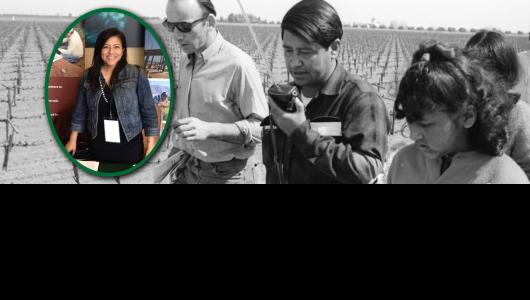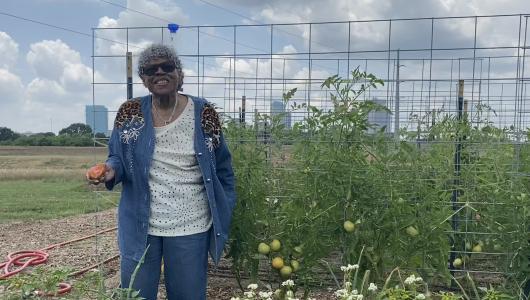In this Ask the Expert, Marlene Werk, a Black Angus cattle rancher on the Fort Belknap Indian Reservation in Blaine County, Montana, discusses the importance of serving on local Farm Service Agency (FSA) County Committees (COC).

FSA county committees affect the administration of FSA programs within a community and help deliver programs at the local level. Members can assist producers through their decision making and help shape the culture of a local FSA office. They also ensure the fair and equitable administration of FSA farm programs in their counties. Each year, FSA accepts nominations for a certain Local Administrative Area (LAA) and the LAA up for election rotates each year. The nomination period for 2022 elections closes on Aug. 1, 2022.
Marlene became a committee member in 2017 as the Fort Belknap Indian Community representative and eventually served a two-year term as vice-chair, and later, chairperson.
Why are county committees important?
County committees look out for local producers and FSA. When natural disasters occur, they try their hardest to make sure the operators are aware of qualifications, guidelines, and deadlines. I’ve seen the work FSA staff does to ensure that all eligible producers receive the assistance they deserve. I feel the county committees are a connection between all local producers, and in my case the Fort Belknap Reservation farmers and ranchers, and USDA to make sure producers are aware of available programs
Why did you decide to become a county committee member?
The previous FSA county executive director in Blaine County encouraged me to run. I frequently called the office to ask questions about available programs and got to know the staff quite well. Not being afraid to ask questions, I found programs that I qualified for in order to help improve the management of my operation. Producers on the Fort Belknap Reservation need to know about the assistance that is available, and I really enjoy working with the FSA to get assistance where it is needed.
My former county executive director was an awesome mentor and taught me a lot, as did the other committee members. I enjoy hearing the stories and seeing how each operator overcame obstacles and how these people strategize their livelihoods daily.
What advice would you give another producer who is considering running for their local COC?
It is an opportunity to volunteer your time and wisdom to assist others. Once you get your feet wet and are familiar with the programs, it is so much easier to communicate with the people on how and why to apply. I ranch on the reservation, and it is difficult, sometimes impossible, to find support through the Tribal Council because they do not have the kind of funding it takes to run these types of programs and serve everyone that qualifies. That’s why I like the FSA county committee. It’s made up of individuals from on and off the reservation to better serve everyone within the boundaries of Blaine County.

What role does FSA and your local county committee play within your tribe and reservation?
Since I joined the county committee, I have seen the role USDA plays on the reservation first-hand. I have seen them work through natural disasters, support, and educate beginning farmers and farm loan participants, as well as partner with the reservation departments and programs to get the word out about programs and services.
I have witnessed the dedication that staff and the administration put in on a daily basis, even when dealing with the pandemic. Throughout the pandemic, USDA continued to serve the public both on and off the reservation to bring these programs to the farmers and ranchers in Blaine County. I remember when the pandemic first hit, FSA partnered with the Fort Belknap Extension office to hand out applications to everyone they could. There was a line of vehicles and the staff handed out an application and explained the application process. They also explained how to apply online for the individuals that did not make it that day.
I’m a member of an American Indian tribe. Can I vote in county committee elections?
Yes, every member of an American Indian tribe is considered an agricultural landowner if the land is tribally owned or held in trust by the United States for the tribe, even if you don’t personally produce a crop on that land. If you’re 18 years or older, contact your local FSA office to register. After you provide FSA with your contact information, you will be updated as an eligible voter in the election database.
How does your local FSA office and county committee reach out to members of the tribe to increase voting participation in COC election?
Communication and partnership. FSA sends out notifications through the post office and when the operators come into the office, the staff always reminds everyone of upcoming deadlines. They work closely with the Fort Belknap Land Department and have a mailing list to keep individuals informed in case they’re interested in running to represent or want to know who is running so they can vote. They also send out ballots with instructions on how to vote and return ballots to the office.
Where can I go for more information?
For more information contact your local FSA office or visit fsa.usda.gov/elections.
Greer Gill is the communications coordinator for FSA in Tennessee. She can be reached by email at greer.gill@usda.gov.


